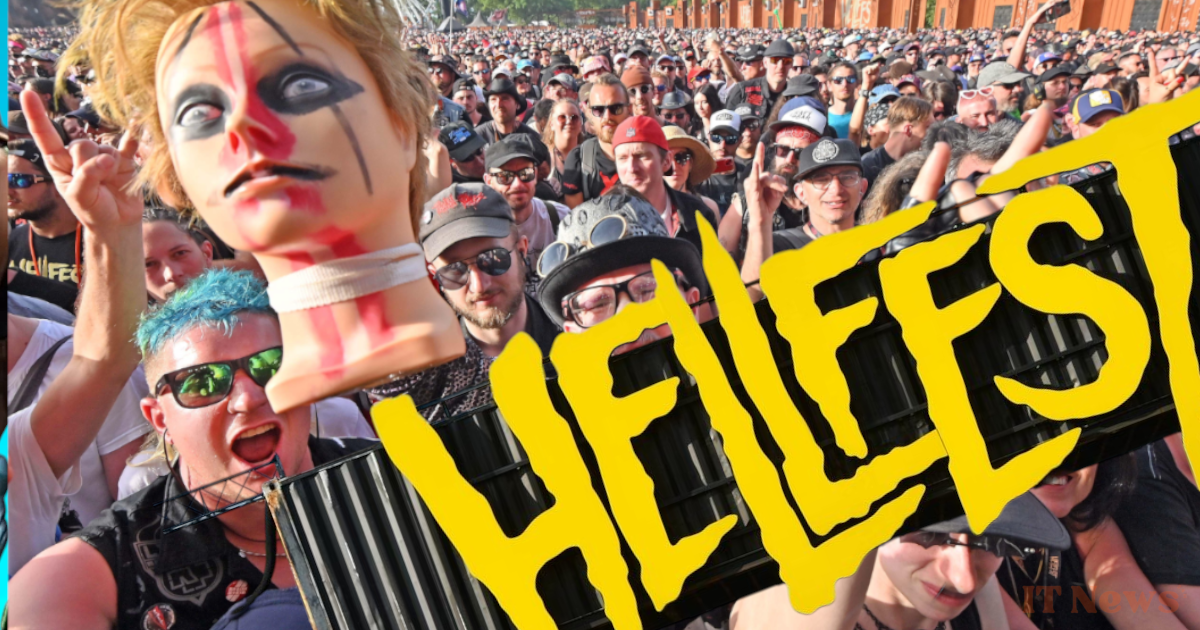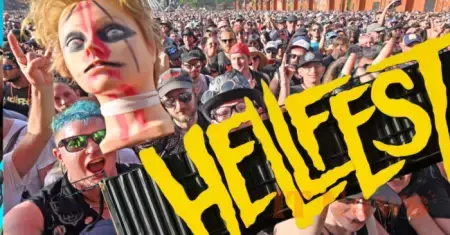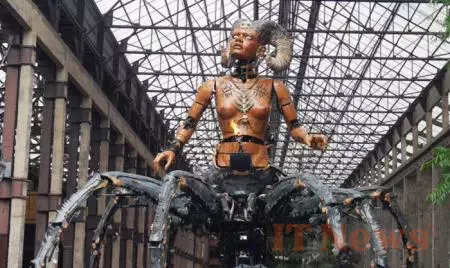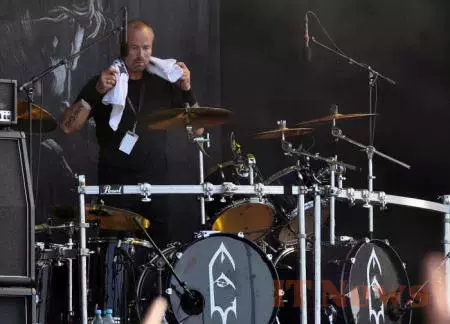Huge controversy less than a week before the start of Hellfest. The 2025 lineup includes a drummer convicted of homophobic murder in the 1990s. What is the festival's responsibility for this decision?
184 bands and new acts at Hellfest 2025
The gates of hell are ready to open. In exactly six days, the 18th edition of Hellfest will be held in the famous village of Clisson in Loire-Atlantique. And a new edition inevitably means some new features: a new brasserie/restaurant called Hellcity with a unique menu that festival-goers considered too expensive, as well as a new guitar-shaped arch to welcome the Guardian of Darkness, the "goddess of the festival" discovered last year. Europe's biggest metal festival (along with Wacken Open Air) will honor its reputation with no fewer than 184 bands spread across the 6 stages. Rocket metal music legends like Korn, Linkin Park, Muse, Scorpions, Eagles of Death Metal, and Judas Priest will be joining forces with newcomers. Everything looks set to be a memorable edition. Will the attendance record be broken?
The Bård Eithun affair: how should Hellfest react?
But less than a week before the opening of Hellfest, the festival is tainted by a major controversy. Mediapart brings up a sordid affair that occurred in 1992 and is well-known to the scene's biggest aficionados. Bård Eithun, drummer for the band Emperor, stabbed a gay man named Magne Andreassen thirty-seven times in Norway. The man was subsequently sentenced two years later to fourteen years in prison. He only released nine albums, and it was released in 2009.
Since then, "Faust," his stage name, has continued his career as a musician, and will be featured at Hellfest in the show "Blood, Fire, Death", in tribute to the Swedish band Bathory. By producing such an artist, what is the festival's responsibility? As reported by Mediapart, hosts Tom Dare and Matt Rushton of the podcast "Hell Bent for Metal" dedicated to LGBTQI+ issues within the metal ecosystem see this as a problem. "As long as he doesn't express remorse or apologize, inviting him to perform on stage is tantamount to condoning what he did."
The investigative media outlet went digging through the archives and announced that it had found no trace of a public apology or remorse related to this act. "I have to take responsibility for my actions and serve my sentence. I took his life and I paid the price. It doesn't matter, at least not in my opinion," Faust declared in 1995. 20 years later, his problems are now behind him. "I don't see how my case is relevant today, thirty-three years later."
When asked, the festival declined to comment. Pascal Gueugue, director of the young Fédération des Musiques Métalliques, raises a major issue that hangs over the metal scene. "There aren't enough bands taking advantage of this huge showcase that is Hellfest to spread useful messages (...), there is a resistance from the rock scene regarding these subjects that is problematic."






0 Comments